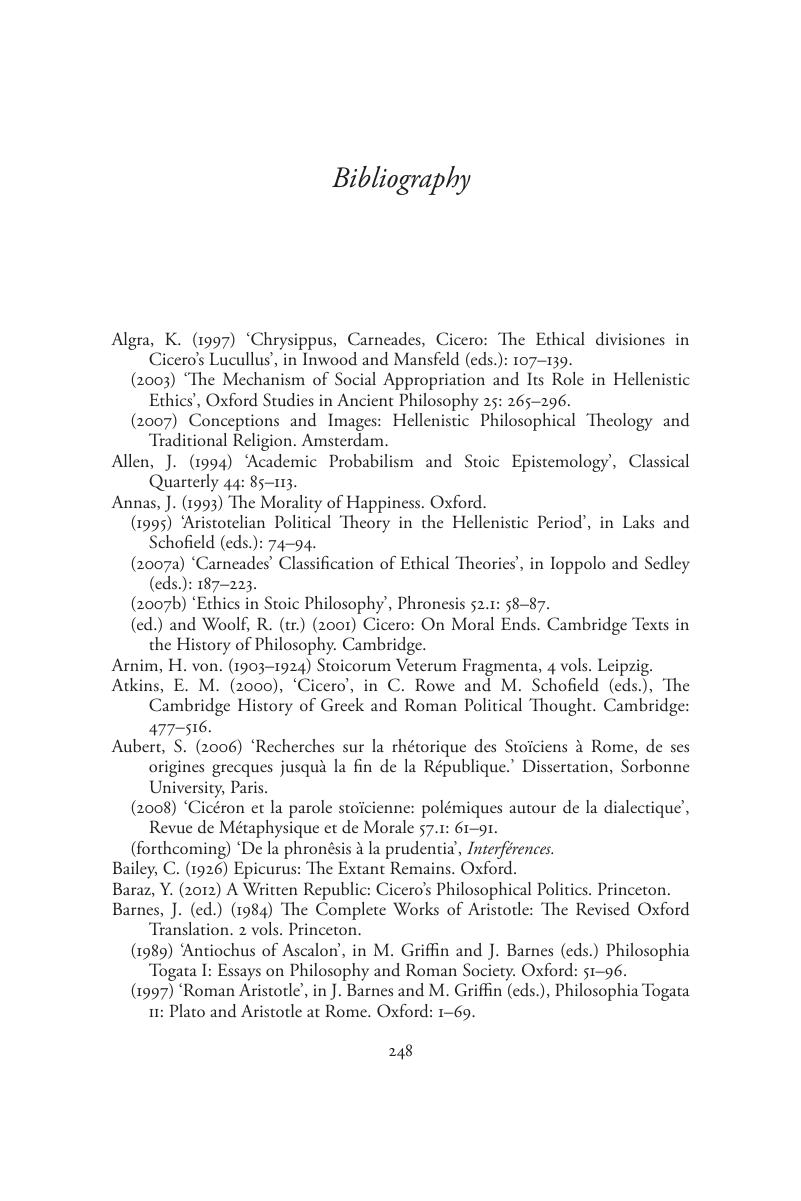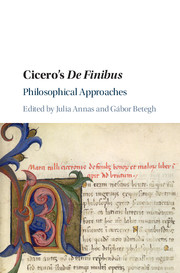Book contents
- CICERO’S DE FINIBUS
- Cicero’s De Finibus
- Copyright page
- Contents
- Contributors
- Introduction
- Chapter 1 Cicero’s sceptical methods
- Chapter 2 Epicurean pleasure in Cicero’s De Finibus
- Chapter 3 Cicero and Epicurean virtues (De Finibus 1–2)
- Chapter 4 Epicurus on the importance of friendship in the good life (De Finibus 1.65–70; 2.78–85)
- Chapter 5 Honor and the honorable
- Chapter 6 The voice of nature
- Chapter 7 Sententia explosa
- Chapter 8 Structure, standards and Stoic moral progress in De Finibus 4
- Chapter 9 Antiochus’ theory of oikeiōsis
- Bibliography
- Subject index
- Index locorum
- References
Bibliography
Published online by Cambridge University Press: 05 December 2015
- CICERO’S DE FINIBUS
- Cicero’s De Finibus
- Copyright page
- Contents
- Contributors
- Introduction
- Chapter 1 Cicero’s sceptical methods
- Chapter 2 Epicurean pleasure in Cicero’s De Finibus
- Chapter 3 Cicero and Epicurean virtues (De Finibus 1–2)
- Chapter 4 Epicurus on the importance of friendship in the good life (De Finibus 1.65–70; 2.78–85)
- Chapter 5 Honor and the honorable
- Chapter 6 The voice of nature
- Chapter 7 Sententia explosa
- Chapter 8 Structure, standards and Stoic moral progress in De Finibus 4
- Chapter 9 Antiochus’ theory of oikeiōsis
- Bibliography
- Subject index
- Index locorum
- References
Summary

- Type
- Chapter
- Information
- Cicero's De FinibusPhilosophical Approaches, pp. 248 - 258Publisher: Cambridge University PressPrint publication year: 2015



